It’s that time of the year when Brooklyn Bridge Park is filled with an abundance of nesting and migratory birds. Park visitors and seasoned birdwatchers alike can delight in spotting everything from Barn Swallows, to Cedar Waxwings, Gray Catbirds, Common Terns, and more. We recently checked-in with Heather Wolf, author of Birding at the Bridge and founder of the popular blog Brooklyn Bridge Birds — who shared her deep knowledge of the seasonal summer birds currently found in the Park.
Highlighted below are some of the species she shared with us, as well as a few handy tips (and bird sounds!) for first-time birders.
Tips for Spotting Birds
- To find birds more easily, listen for and follow their songs and calls.
- Best bird-spotting hours in the park are before 11am and in the hour before sunset until a little before dark.
- Summer is bird-nesting season! If you are lucky enough to spot a nest, observe from a distance. If an adult bird has food in its beak but is staring at you instead of feeding its nestlings, you are too close.
- Remain aware of your surroundings and continue to safely social distance (staying six feet from others) and wear a face covering.
- To see what birds have been spotted in the park and when, visit https://ebird.org/hotspot/L1902982.
- Need help identifying a bird? Download the free Merlin Bird ID app: https://merlin.allaboutbirds.org/.
The Birds of Summer
Barn Swallow
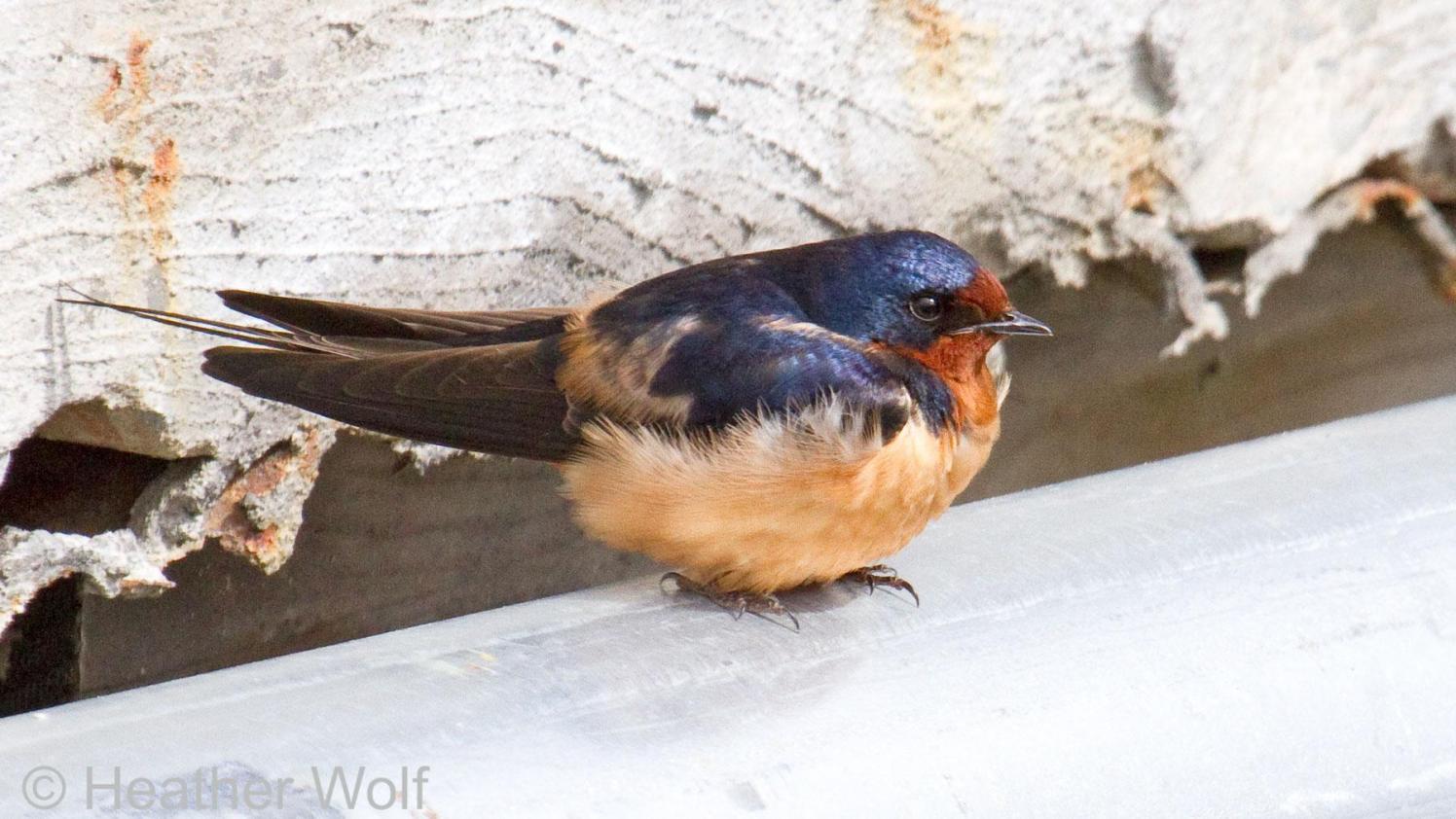
© Heather Wolf
Barn Swallows arrive from South America each spring and build nests of mud and dry grasses under the park’s piers. Watch for their acrobatic flight patterns all summer as they catch insect snacks mid-air.
Cedar Waxwing
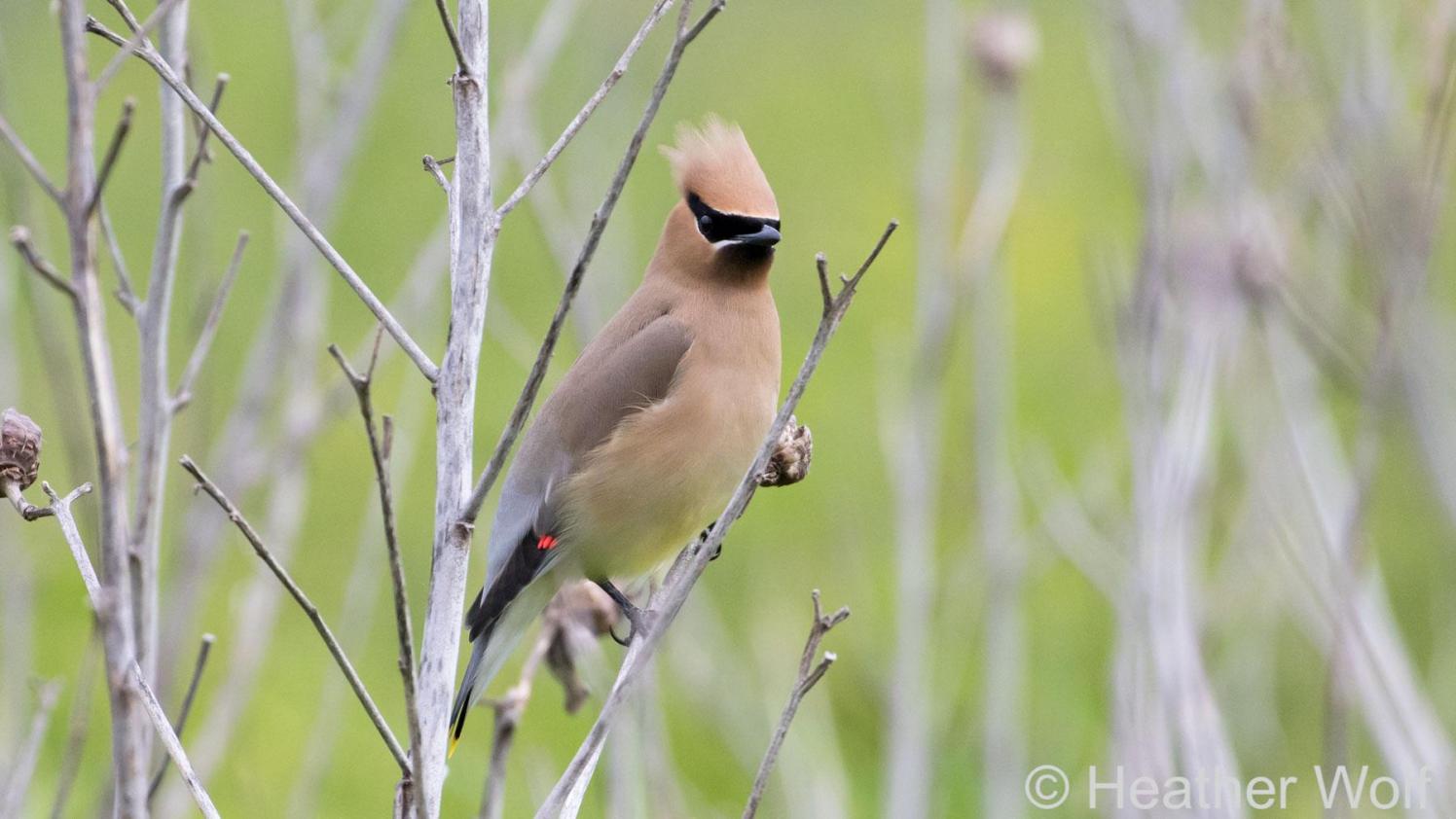
© Heather Wolf
Cedar Waxwings visit the park sporadically throughout the year but it’s easy to spot them in summer when they nest here. Listen for their high-pitched whines and whistles as you walk through the park!
Gray Catbird
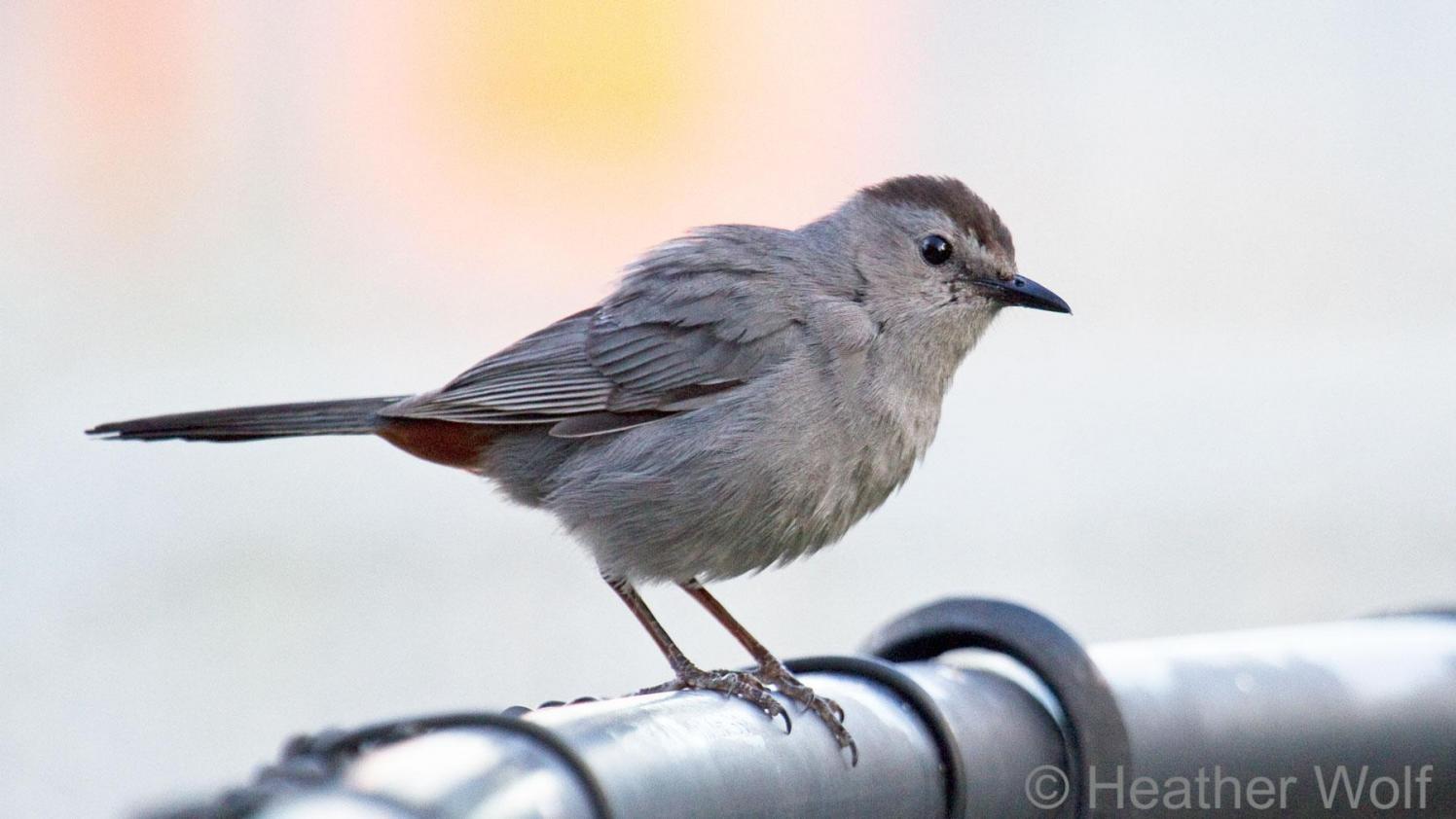
© Heather Wolf
Migratory Gray Catbirds arrive each spring to nest in the park’s trees and shrubs. Listen for their cat-like “meows” all summer, as well as their cheery mimicking of other birds’ songs.
Common Tern

© Heather Wolf
In summer, Common Terns often perch on pier railings and exposed pilings as they scan for fish. Come September, they’ll fly back to South America to spend the winter.
Laughing Gull
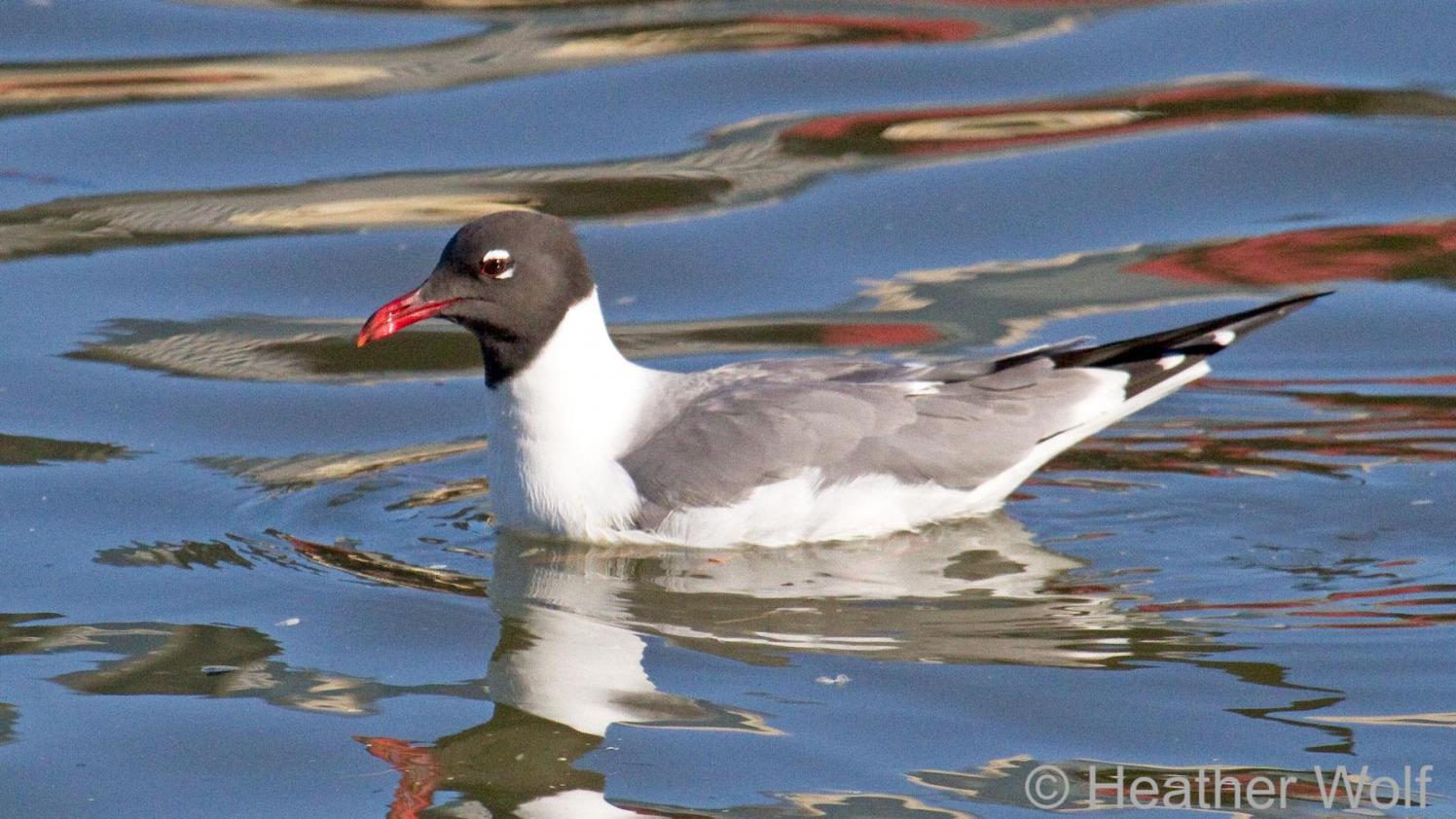
© Heather Wolf
Laughing Gulls are one of the easiest park gulls to identify with their all-black heads. Listen for them chuckling aggressively as they fly around the piers during summer.
House Finch
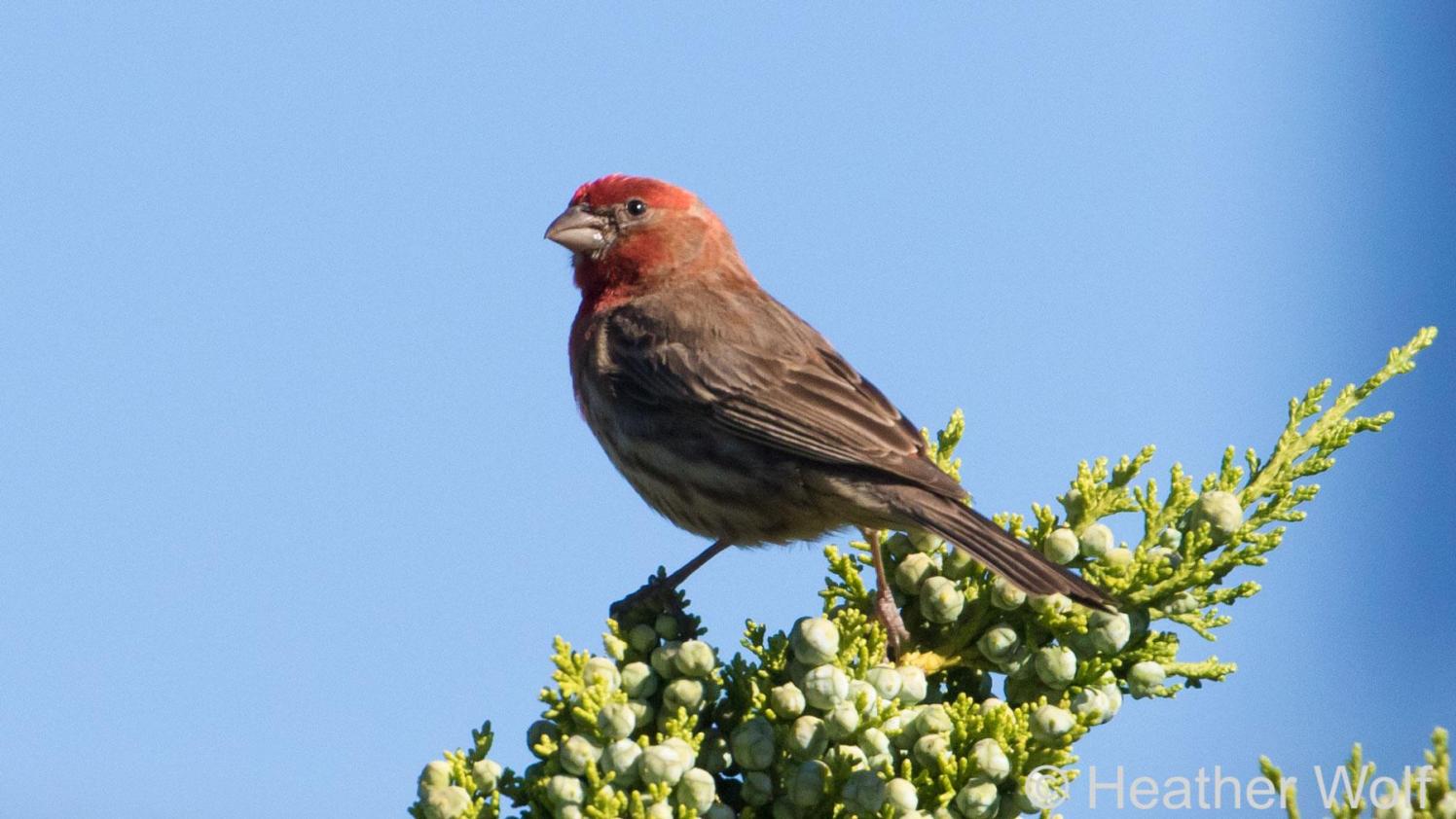
© Heather Wolf
Relatively recent nesters to the park, House Finches can be spotted in the wooded habitats of Piers 1 & 5. You’ll often hear them from a distance, singing a warbling mix of sweet-sounding notes.
Common Grackle

© Heather Wolf
One of the most abundant and noisiest nesting species in the park in summer, Common Grackles often forage and feed their young on the ground and are easy to spot. Their tails are very long relative to the rest of their body which helps to distinguish them from crows or blackbirds.
Female Red-winged Blackbird
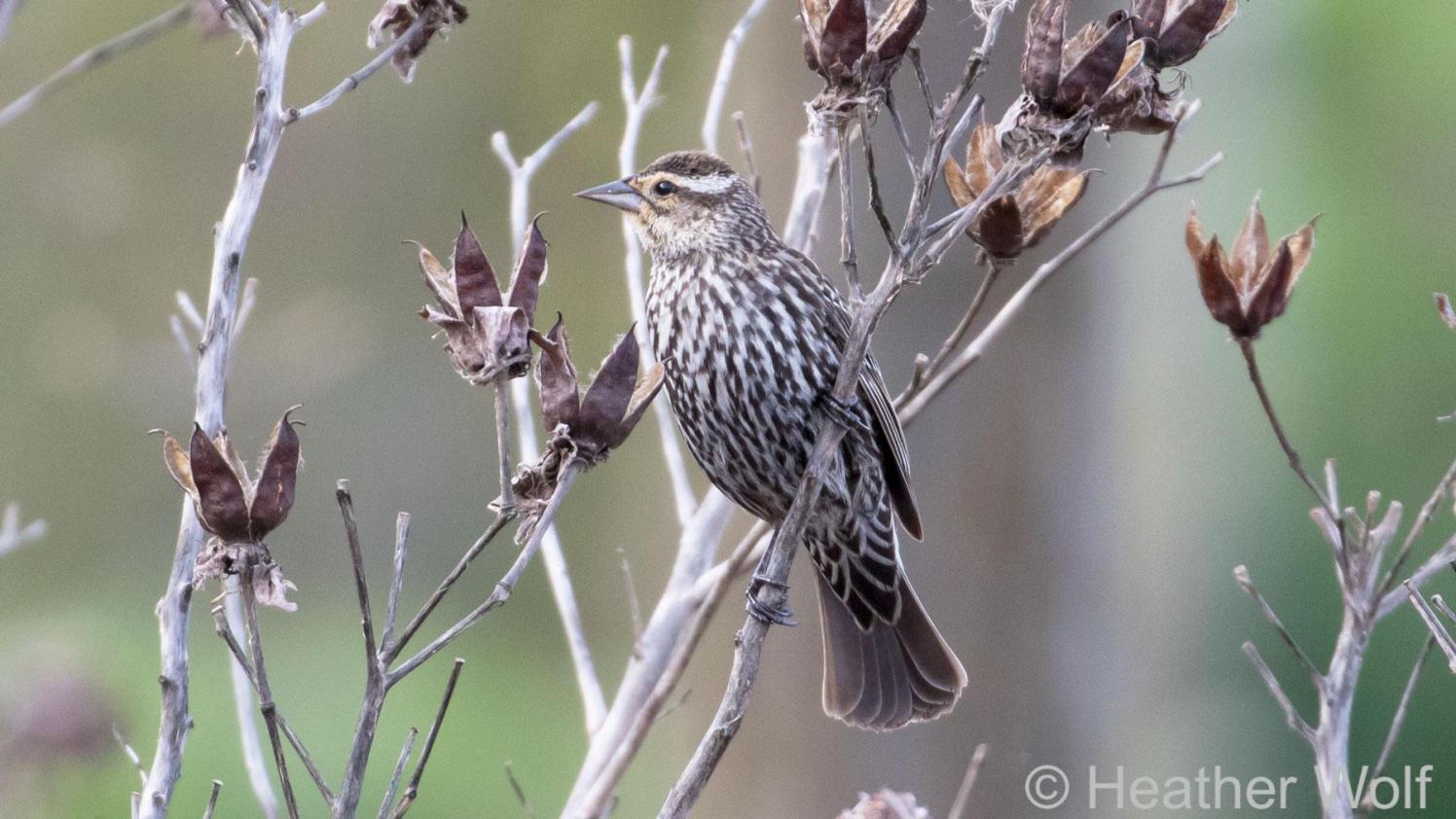
© Heather Wolf
Red-winged Blackbirds are nesting in the park for the very first time this year! Look and listen for them in the trees surrounding the park’s marsh habitats. Note that the female’s plumage very different, with dark brown and white streaking, but her shape and silhouette are the same.
Northern Mockingbird Fledgling
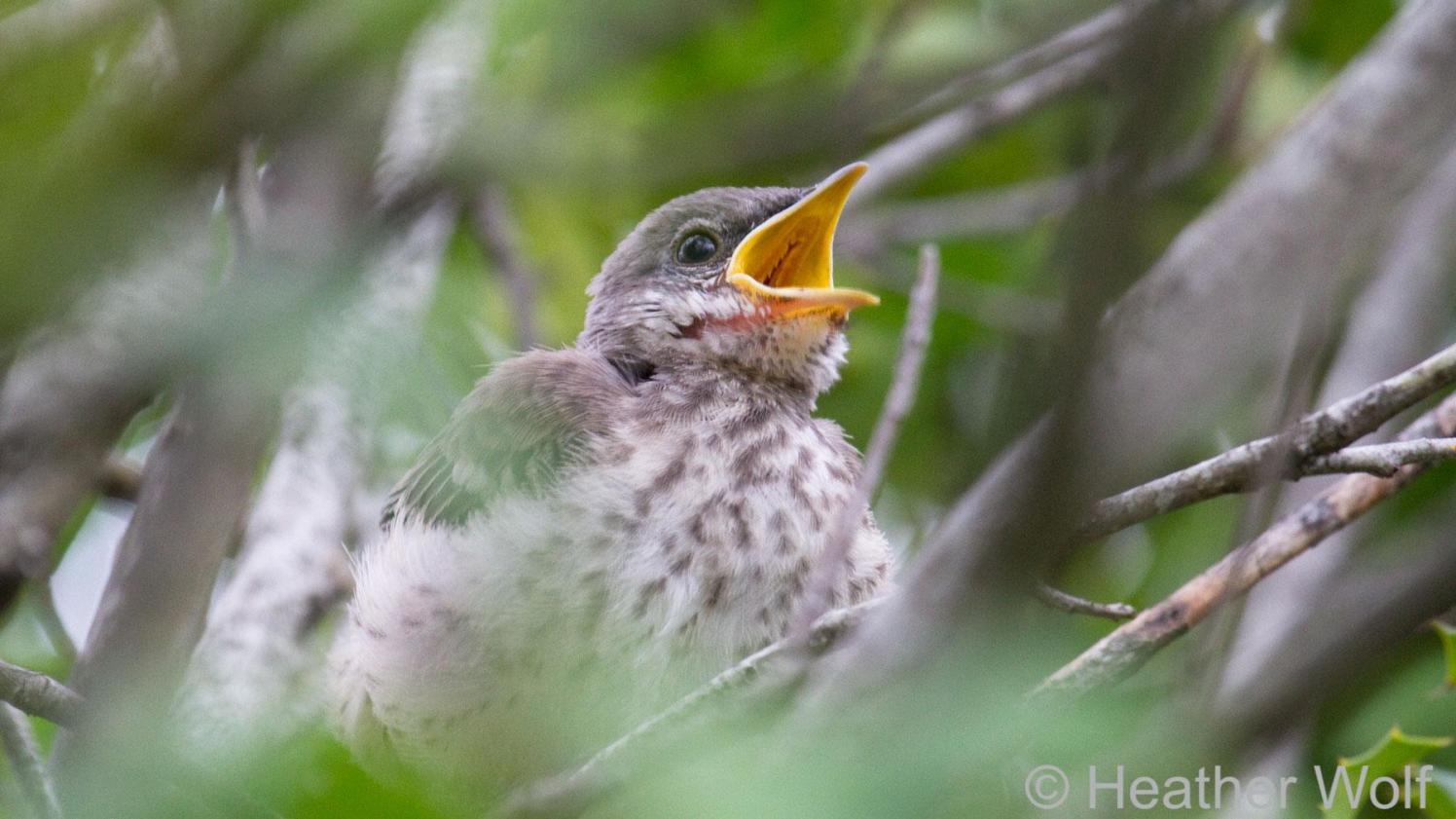
© Heather Wolf
A year-round park resident, the Northern Mockingbird is very territorial over its nests and fledglings like the one shown here. When they’re not chasing off other birds, mockingbirds can often be seen singing from the top of light posts.
If you want to learn more about the birds of Brooklyn Bridge Park, check out Birding at the Bridge or follow Heather Wolf on Instagram and Twitter.


